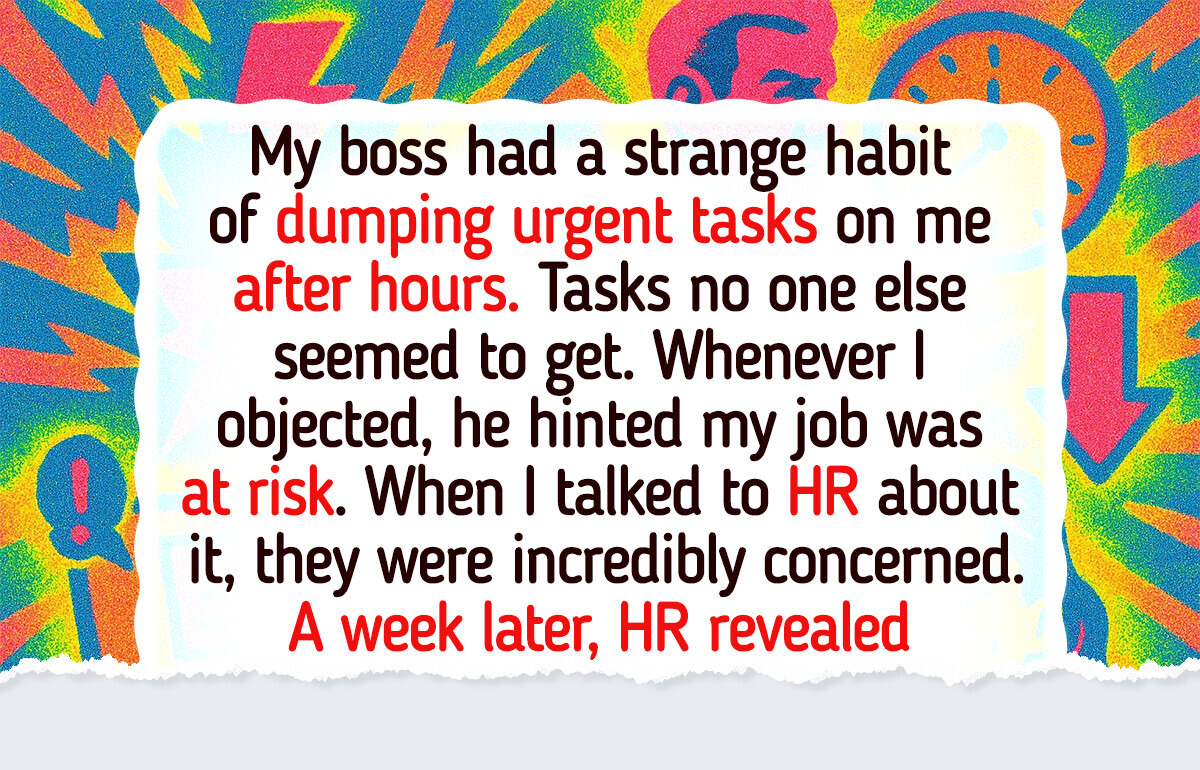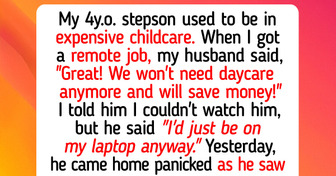15 Real Stories With Twists That Could Chill You to the Core


Maintaining a healthy work-life balance can be a challenge, but what happens when a boss intentionally tries to sabotage it? We often hear stories of difficult managers, but sometimes, a situation crosses the line into something far more serious. Recently, one person shared his story of how a seemingly innocent question led to unforeseen results.
I started as a junior dev in March to my recent company. I was on a six-month probation program. Then, a few months in, a strange pattern began with my boss.
Let’s call him David. He had a strange habit of dumping urgent tasks on me after hours. Tasks no one else seemed to get. It all started with a task that was suddenly “top priority.”
At first, I tried to be a team player, telling myself this was just part of proving my worth. But as I saw my colleagues leaving the office at 5 PM sharp, while I was just starting on a “crucial” last-minute presentation, I knew something wasn’t right.
One evening, David said I had to stay late for some report he forgot to give me earlier. I already had tickets for a show and said no. He got kinda mad and said my dedication would “affect my future here.”
Thinking I had enough, I started digging through my inbox. I found these “urgent” after-hours emails from David. There were too many of them. As I said, it became a regular thing.
So I forwarded all the questionable emails to HR. I asked for clarification on whether receiving significantly more after-hours requests than my peers was standard practice. I should add that when I talked to HR, they were incredibly concerned.
For a week, I heard nothing. Then the whole office was shocked by what HR revealed about David. It turned out he had been delegating his own responsibilities to me while taking credit for my accomplishments. I must say, I didn’t see that coming.
But then, HR called me in. They said David was guilty, no question, but they were also letting me go. I also didn’t see that coming. The reason they gave was “not adapting to company culture” and “not handling responsibilities properly.” That was wild.
I wanted an explanation. Then the HR rep simply said they can’t really trust someone who reports their boss, especially when the person is still on probation. She said my intentions were good, but the whole thing was too sensitive to ignore. So, what was I supposed to do?
If you found this workplace conflict interesting, check this article for another story: I Complained That My Coworker Refuses to Wear Shoes at Work—It Backfired Hard.











